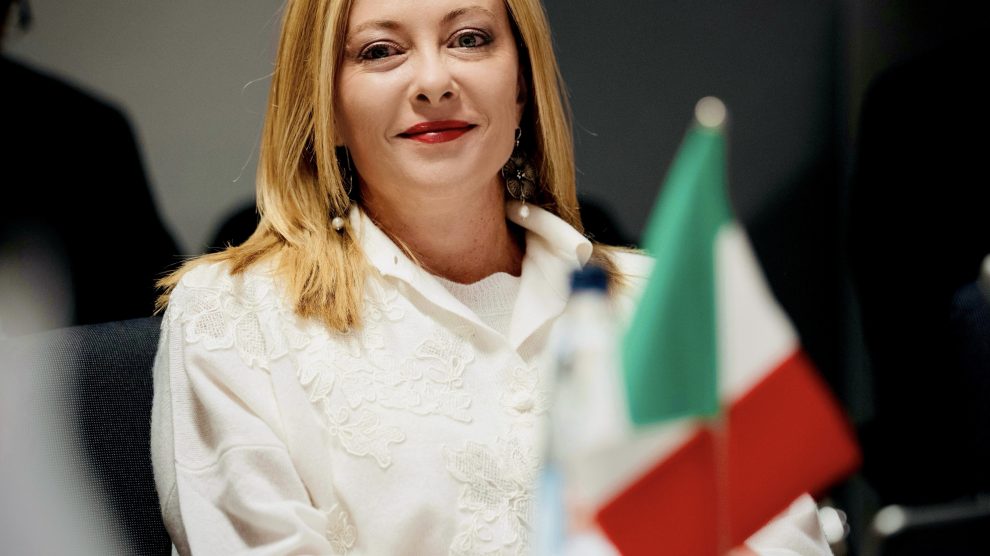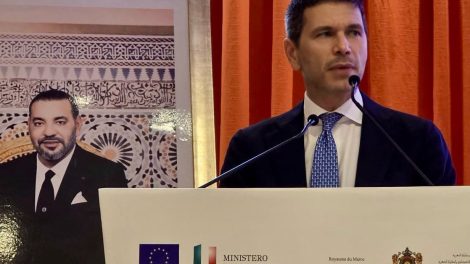As Prime Minister Giorgia Meloni returns to Rome, Palazzo Chigi highlights that the EUCO’s Brussels summit held in October 22-23 followed the trajectory she set in her parliamentary address earlier in the week, where she outlined Italy’s priorities and emphasised three key points:
- Political stability is characterised by a government that endures and makes decisions.
- The IMF and financial markets recognise economic credibility.
- International authority, built on consistency and the ability to project a vision.
This was the message Meloni brought to the European Council: Italy as a predictable actor, capable of keeping its word.
Italian positions that made an impact. The European Council conclusions reflected several Italian priorities:
- Migration: success of the “Italian model,” based on repatriations and cooperation with Africa.
- Green transition: acknowledgement of the need to balance sustainability and industrial competitiveness.
- Security and defence: reaffirmation of NATO’s central role and the principle of national sovereignty in EU decision-making.
The Italian press referred to “Italian leadership in Brussels,” the “Meloni model,” and the government’s determination to urge Europe to “defend itself” without compromising its identity.
The Mediterranean as a strategic lever. Meloni reinforced Italy’s vision as a bridge between Europe, Africa, and the Middle East:
- The Mattei Plan has become part of the European agenda and inspired the emerging Mediterranean Pact.
- On the Middle East crisis, the Prime Minister has always called for a humanitarian ceasefire, maintaining a posture of balance and responsibility.
- Italy presents itself as a builder of bridges, through projects such as the IMEC (India–Middle East–Europe Corridor).
The Ukraine factor. The war in Ukraine dominated much of the Brussels agenda.
EU leaders debated a plan to use frozen Russian assets as collateral for a €140 billion loan to Kyiv — a move still blocked by Belgium.
- Zelensky’s intervention, and bilateral talks with Meloni, focused on protecting Ukraine’s energy infrastructure and ensuring that reconstruction funds also benefit European industry.
- The Italian premier reiterated support for Ukraine’s sovereignty while backing a realistic European mechanism that ties aid to accountability and energy resilience.
The exchange reinforced Italy’s dual role: loyal to the transatlantic consensus but attentive to Europe’s economic interests.
European defence — but not at the expense of sovereignty. Italy supports European strategic autonomy only when complementary to NATO.
- Meloni urged the EU to “defend itself” without sacrificing the identity of its member states.
- Rome opposes any direction that could weaken the transatlantic bond.
The line: More cooperation, but no surrender of sovereignty.
A globally recognised role. In the broader international framework, Italy is increasingly seen as a credible and stable partner:
- The bond with the United States remains strong, with shared interests in security, energy, and investment.
The political view: As Massimiliano Salini (EPP) told our sister website Formiche.net, “today Italy is perceived as a factor of stability — something that, in Europe, was far from taken for granted.”
- “On the main issues of foreign policy — defence, Ukraine, Atlanticism — the government shows a solidity that inspires confidence among partners. Stability, however, must become coherence: clearly deciding where to stand, including in public communication.”
- Salini’s comments reflect the European perception of an Italy that, after years of political uncertainty, has regained institutional continuity and geopolitical credibility—a crucial asset at a time when Brussels is refocusing on foreign policy, sanctions, and common defence.
The takeaways: The European Council projected the image of an Italy that is:
- Solid in its economic choices.
- Respected in international forums.
- Aware of its political and diplomatic strength.
In essence: Meloni is not merely reacting, but helping to shape Europe’s direction — a posture of continuity and leadership that strengthens Italy’s role in the Union’s evolving balance.





